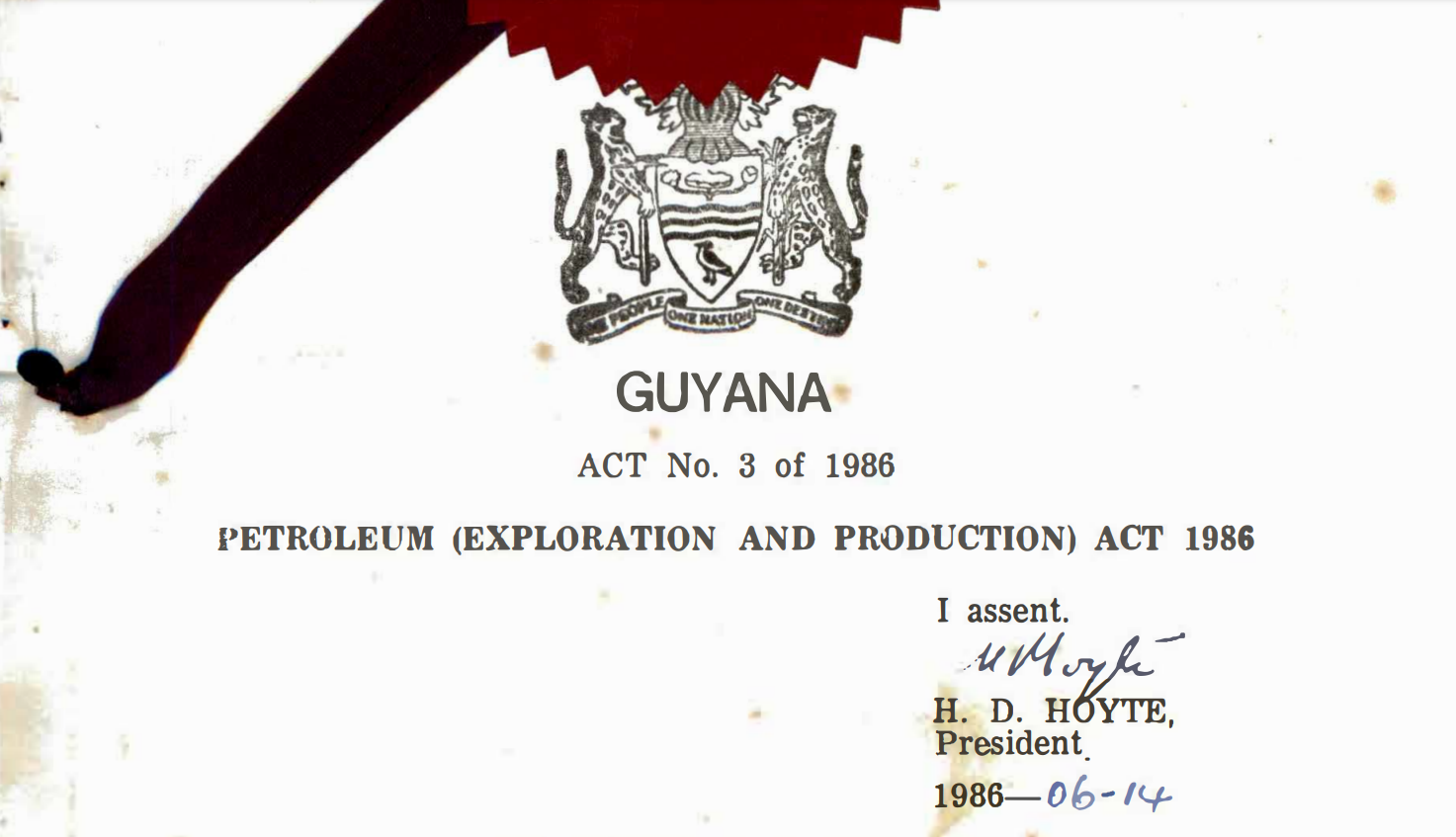With global interest in Guyana’s oil blocks, gov’t moving to overhaul old Petroleum law

By Vishani Ragobeer
Guyana currently has 14 oil blocks up for grabs in shallow and deep water areas offshore and with evident interest in all of those blocks, the government is stepping up efforts meant to overhaul the 1986 Petroleum Act.
According to a press release issued by the Ministry of Natural Resources on Tuesday, an overhaul of that law and key regulations are meant to ensure that new investments are governed by “a comprehensive framework of international best practices.”
Last year, Vice President Dr. Bharrat Jagdeo said the Petroleum Act would be revised by March 2023; this is needed to reflect the numerous changes in the petroleum landscape.
The recent announcement of impending legislative changes, however, came as the government released new oil contracts and invited submissions on the contracts over a 14-day consultation period.
Those new contracts, deemed model Petroleum Agreements, should be inked between the government and the countries or companies that successfully bid for the 14 oil blocks.
“The draft Model Petroleum Agreements embodies rigorous research and analysis by the ministry’s internal team, and external consultants on all topics relevant to a modern petroleum agreement for Guyana.
“The process involved a comprehensive assessment of the current petroleum agreement and the identification of best practices relevant to every contractual aspect of a modern agreement grounded in the Guyana context,” the Natural Resources Ministry said.
</p>
<p>” data-medium-file=”https://newsroom.gy/wp-content/uploads/2023/03/336181622_1895504510792652_3522037565794894575_n-232×300.jpg” data-large-file=”https://newsroom.gy/wp-content/uploads/2023/03/336181622_1895504510792652_3522037565794894575_n-792×1024.jpg” decoding=”async” loading=”lazy” class=” wp-image-159721″ src=”https://newsroom.gy/wp-content/uploads/2023/03/336181622_1895504510792652_3522037565794894575_n-792×1024.jpg” alt=”” width=”612″ height=”791″ srcset=”https://newsroom.gy/wp-content/uploads/2023/03/336181622_1895504510792652_3522037565794894575_n-792×1024.jpg 792w, https://newsroom.gy/wp-content/uploads/2023/03/336181622_1895504510792652_3522037565794894575_n-232×300.jpg 232w, https://newsroom.gy/wp-content/uploads/2023/03/336181622_1895504510792652_3522037565794894575_n-768×993.jpg 768w, https://newsroom.gy/wp-content/uploads/2023/03/336181622_1895504510792652_3522037565794894575_n.jpg 990w” sizes=”(max-width: 612px) 100vw, 612px”><figcaption class=) The 14 oil blocks that are up for grabs in shallow and deep water areas offshore Guyana (Map from the Ministry of Natural Resources)
The 14 oil blocks that are up for grabs in shallow and deep water areas offshore Guyana (Map from the Ministry of Natural Resources)Because of a lopsided Production Sharing Agreement (oil contract) between Guyana and an ExxonMobil-led consortium for the prolific Stabroek Block, the government said it is keen on guaranteeing that future deal augur greater benefits for Guyana.
In the new contracts, there will be separate requirements for qualification to participate in deepwater versus shallow water blocks for tender with a higher bar set for deepwater areas, which reflects the capital-intensive nature of deepwater exploration and production (E&P) and the highly specialised technical competence required for deepwater E&P activities.
Importantly, there will be a minimum signature bonus requirement of US$10 million for shallow water and US$20 million for deepwater blocks.
The minimum work commitments specified for the initial and renewal periods of the prospecting license consist of a combination of seismic and drilling of exploration wells with the fulfilment of prior commitment as a precondition to enter into the subsequent renewal periods.
And there is a participation fee of US$20,000 in respect of a block for tender in order to gain access to the virtual data room and participate in the competitive bidding process.
Based on previous comments offered by top government officials, the administration is hoping to award new contracts by the end of May 2023; bids should be closed in April.
Already though, the Natural Resources Ministry said all of the blocks have attracted interest.
“Official Expressions of Interests (EoI) have been received for all fourteen blocks for tender of the Guyana 2022 Licensing Round, demonstrating global interest in Guyana’s shallow and deepwater offshore acreage,” the release further noted.
Based on international reports, Guyana’s auction has attracted at least 10 companies including Shell, Petrobras and Chevron. The government has also been inviting countries to assess the auction and potentially bid for oil blocks.
At the recently-concluded International Energy Conference and Expo in Guyana, Vice President Jagdeo said each investor will be allowed up to three blocks.


